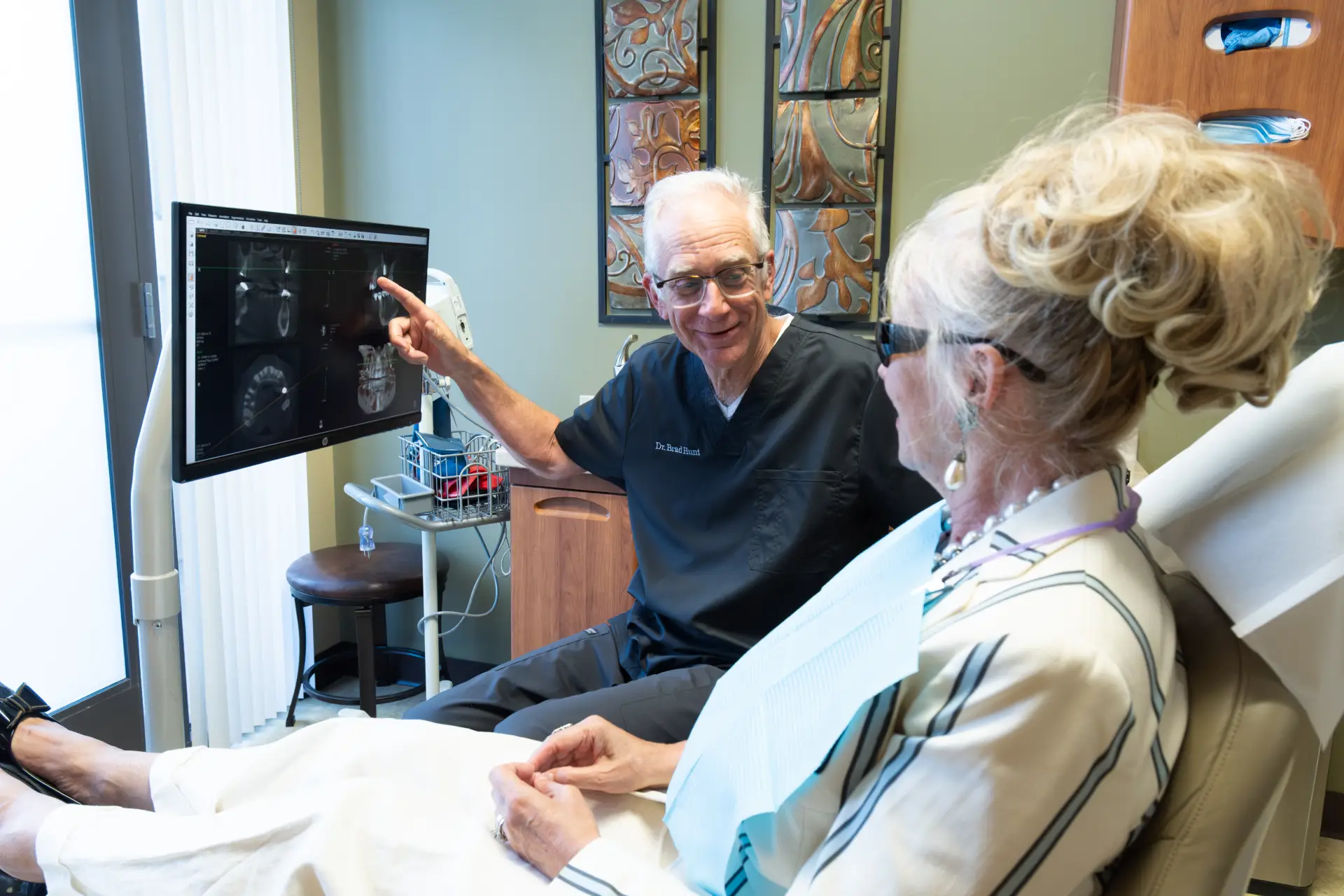
Periodontal CareIn San Diego, CA
It’s easy to let oral health slide—life gets busy. But if you’re noticing signs of gum disease, you’re not alone. Gingivitis and periodontitis are more common than you think. The good news? We're here to help you take back control of your smile.

Do I really need periodontal care?
If your gums are swollen, bleed easily, or you’re experiencing discomfort, it may be time to see a dentist for periodontal care. Treating gum disease early can help protect your natural teeth and prevent long-term damage. Left untreated, it can lead to tooth loss and serious oral health issues. The sooner we catch it, the better the outcome.
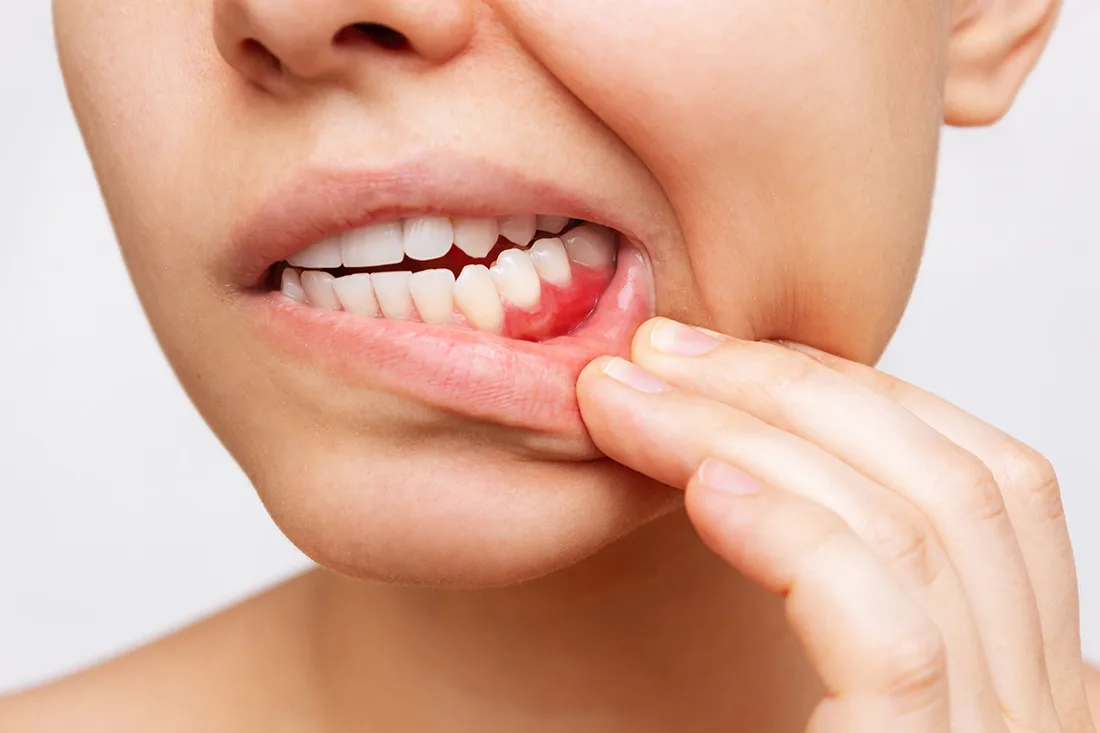
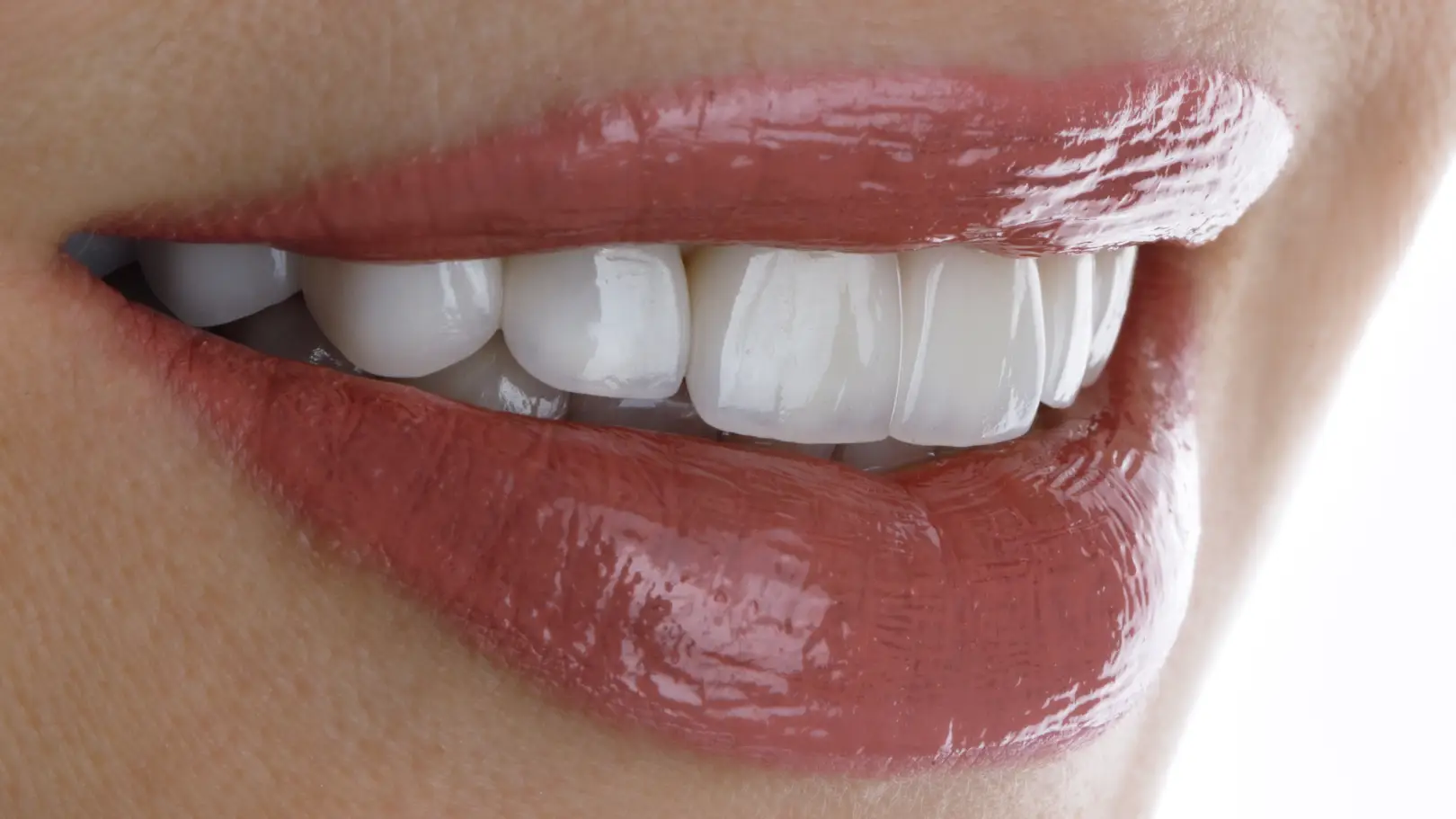
The Benefits of Periodontal Care
Restore Gum Health
With early intervention, we can stop gingivitis in its tracks and bring your gums back to a healthy state.
Stop Progression
Regular deep cleanings and maintenance help prevent bacteria from building up again, protecting your gums long-term.
Avoid Costly Treatment Later
Catching gum disease early can prevent the need for more invasive (and expensive) treatments like grafts or implants.
Our Difference
The Deep Cleaning Process
Local Anesthetic
We begin by applying a local anesthetic to the affected area. This ensures you stay comfortable throughout the entire procedure. Deep cleanings—also known as scaling and root planing—go below the gum line, which can cause some sensitivity if not properly numbed. Our team uses gentle techniques to make the numbing process quick and easy, so you can relax during your visit and feel confident knowing your comfort is our top priority.
Scaling & Root Planing
The first non-surgical step is to remove plaque and tartar from below the gum line and from deep pockets. this manual procedure may take one to two visits to complete and is performed with local anesthetic for your comfort.
In many cases, patients respond quite well to this "deep cleaning" and may not require more aggressive treatment. Even in cases where there is severe disease, non-surgical intervention. this has been shown to improve tissue health and potentially decrease the amount of surgery needed as well as improve your tissue's response to surgery.
Dr. Hunt may incorporate other treatment at the same time to increase the effectiveness of treatment. He may prescribe a round of oral antibiotics to help boost your immune system to combat the bacterial infection in your gum tissue. He may introduce local chemotherapeutic agents directly into pockets where bacteria are harbored or irrigate pockets with antimicrobials. Dr. Hunt feels strongly that each adjunctive treatment option is to be used only in situations where it has been proven to be effective for your specific disease process.
Antimicrobial Treatment
To finish, we may apply a localized antimicrobial solution directly into the pockets around your teeth. In some cases, we’ll also prescribe oral antimicrobials to continue fighting the infection. These treatments are chosen based on your unique oral health needs. Antimicrobials help reduce inflammation, encourage healing, and lower your risk of reinfection, especially in the days following your deep cleaning.
FAQs
Frequently Asked Questions
Check out these frequently asked questions, or call us to speak with our team.
Gum disease progresses through three main stages. It starts with gingivitis, which is the only stage that’s reversible. At this point, your gums may bleed when you brush, feel tender, or appear red and puffy—but no permanent damage has occurred yet. If not treated, it can progress to periodontitis, where the infection begins to damage the structures that support your teeth, leading to gum recession, sensitivity, and bone loss. The most severe form is advanced periodontitis, which can result in deep gum pockets, loose teeth, or even tooth loss. Early detection and treatment are key to preventing long-term damage.
Not exactly. Gum disease itself isn’t contagious like a cold or the flu. It’s caused by harmful bacteria that already exist in the mouth. However, it is possible for those bacteria to be transferred through saliva—like sharing utensils or kissing—especially if one person has poor oral hygiene. Even so, just having the bacteria doesn’t mean you’ll get gum disease. Factors like oral care habits, genetics, and immune health play a much bigger role in whether or not the disease develops.
Gum disease is caused by the buildup of bacteria-laden plaque and tartar on your teeth, especially around and beneath the gum line. When this buildup isn’t removed regularly through brushing, flossing, and professional cleanings, it triggers an inflammatory response that damages your gum tissue. Other contributing factors include smoking, diabetes, stress, hormonal changes, and even your genetics. That’s why even people with good oral hygiene can sometimes struggle with gum issues if they have a family history of periodontal disease. Early diagnosis and ongoing maintenance are key to preventing serious damage.
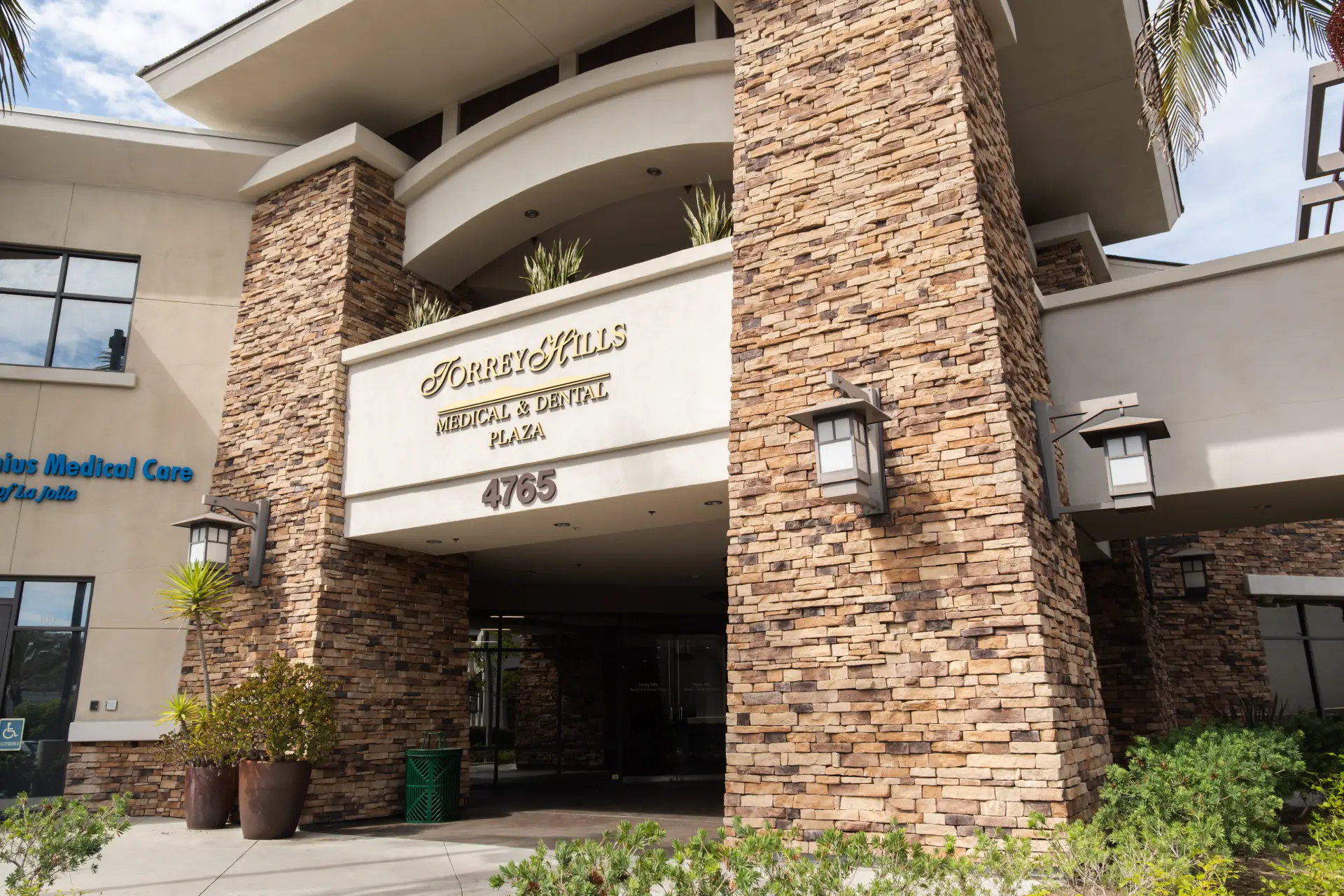
.png)
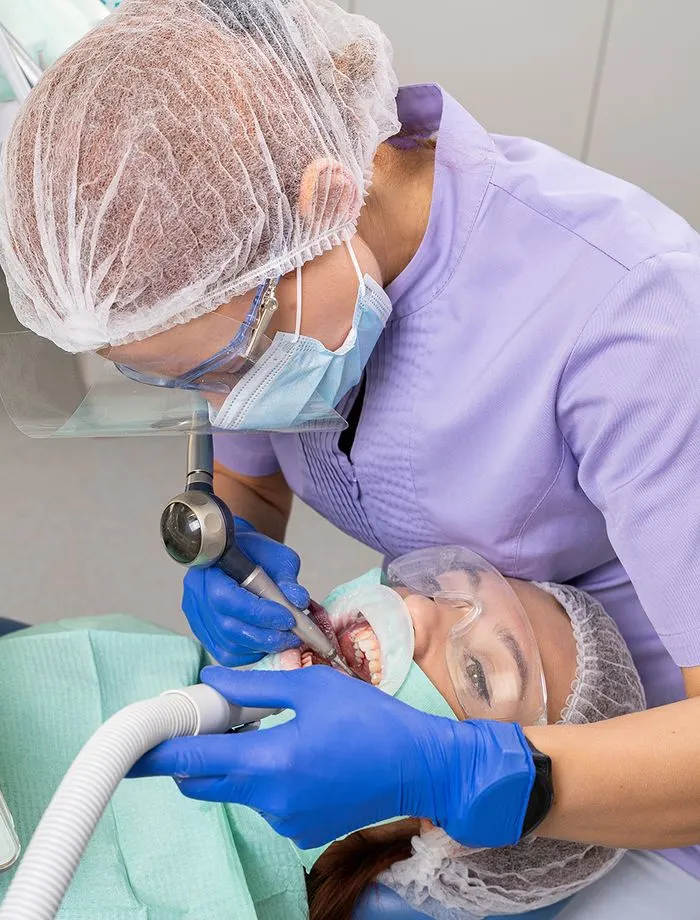

.webp)